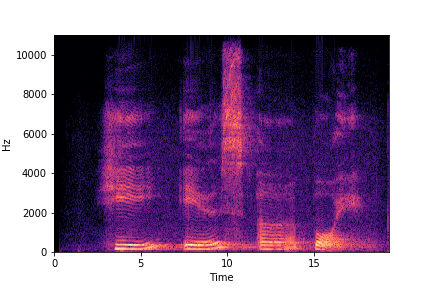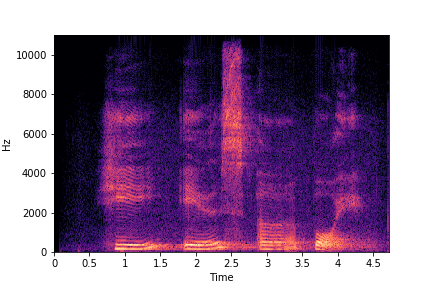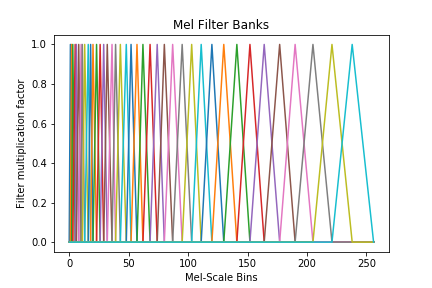This repository contains a Python implementation of Short-time Fourier transform (STFT) and Mel-frequency cepstral coefficients (MFCCs) from scratch, along with comparisons with the librosa implementation.
For further details on the results and analysis, please refer to the report - report.pdf
Make sure you have a Python3+ version. Run the following command -
pip install -r requirements.txt
Open jupyter notebook using the following command -
jupyter notebook
and select notebook.ipynb. All the step-by-step code and analysis is present here.
The implementations differ slightly in terms of computation time taken to obtain the spectrogram (primarily because of the internal optimisation done by librosa).
On a short 3 second recording, the Spectrogram as obtained from librosa is as follows -
The Spectrogram obtained from custom implementation is as follows -
A primary reason to switch to a Cepstral scale is to map audio frequencies in a scale which represents the way humans perceive sound.
The Mel Filter banks look like this -
Copyright (c) 2020 Brihi Joshi
For license information, see LICENSE or http://mit-license.org
This code was written as a part of a course assignment in Speech Recognition and Understand with Dr. Pravesh Biyani at IIIT Delhi during Winter 2020 Semester.
For bugs in the code, please write to: brihi16142 [at] iiitd [dot] ac [dot] in


